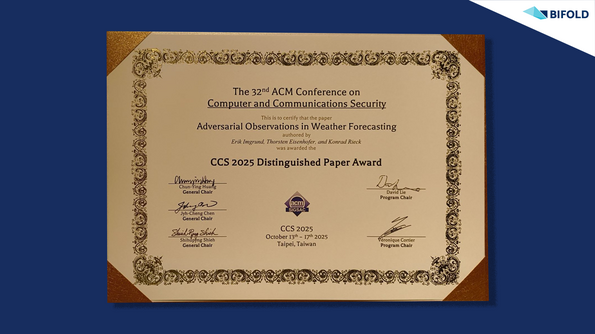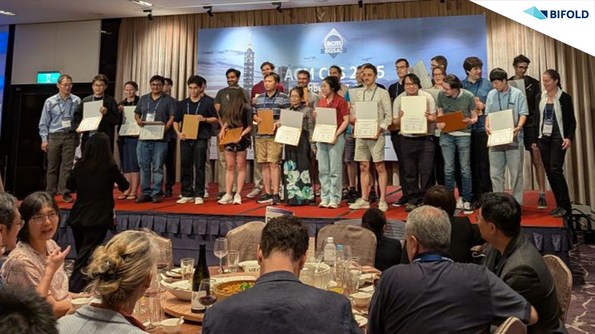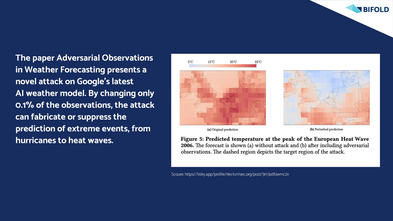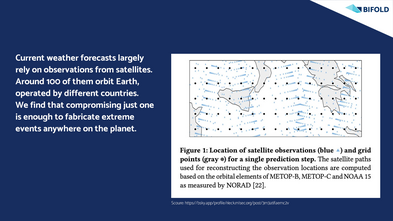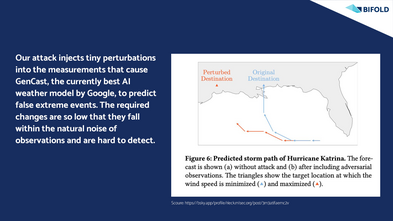BIFOLD Researchers awarded for research paper showcasing Security Risks in AI-Based Weather Predictions
Congratulations to the researchers Erik Imgrund, Thorsten Eisenhofer, and Konrad Rieck on receiving the Distinguished Paper Award at the ACM Conference on Computer and Communications Security (CCS) for their paper, “Adversarial Observations in Weather Forecasting.” The CCS is recognized as a leading conference in cybersecurity research, comparable to VLDB in databases and NeurIPS in machine learning. All three authors are members of BIFOLD´s Machine Learning and Security research group, led by Prof. Dr. Konrad Rieck.
Vulnerabilities in AI-Based Forecasting
The authors demonstrate that extremely subtle, perturbations to meteorological satellite data can significantly alter the outcome of AI-generated weather forecasts. These manipulations can fabricate or conceal extreme weather events, including hurricanes, floods, and heat waves, while modifying less than 0.1% of the original measurements—comparable to tampering with data from one single satellite.
Modern weather prediction systems integrate data from nearly a hundred satellites, operated by various international actors including the United States, China, Russia, Japan, and the European Union. The study highlights how this distributed infrastructure creates a substantial attack surface with the potential to trigger large-scale disruptions and erode public trust in automated forecasting.
Implications and Resources
As machine learning systems increasingly replace traditional meteorological models, the findings underscore an urgent need for robust security mechanisms in climate and weather-related AI applications.
The full paper and source code are publicly available:
Title: Adversarial Observations in Weather Forecasting
Authors: Erik Imgrund, Thorsten Eisenhofer, Konrad Rieck
Erik Imgrund presented the paper at the ACM Conference on Computer and Communications Security (CCS), held from October 13–17, 2025, in Taipei, Taiwan and attended the award ceremony (photo).




